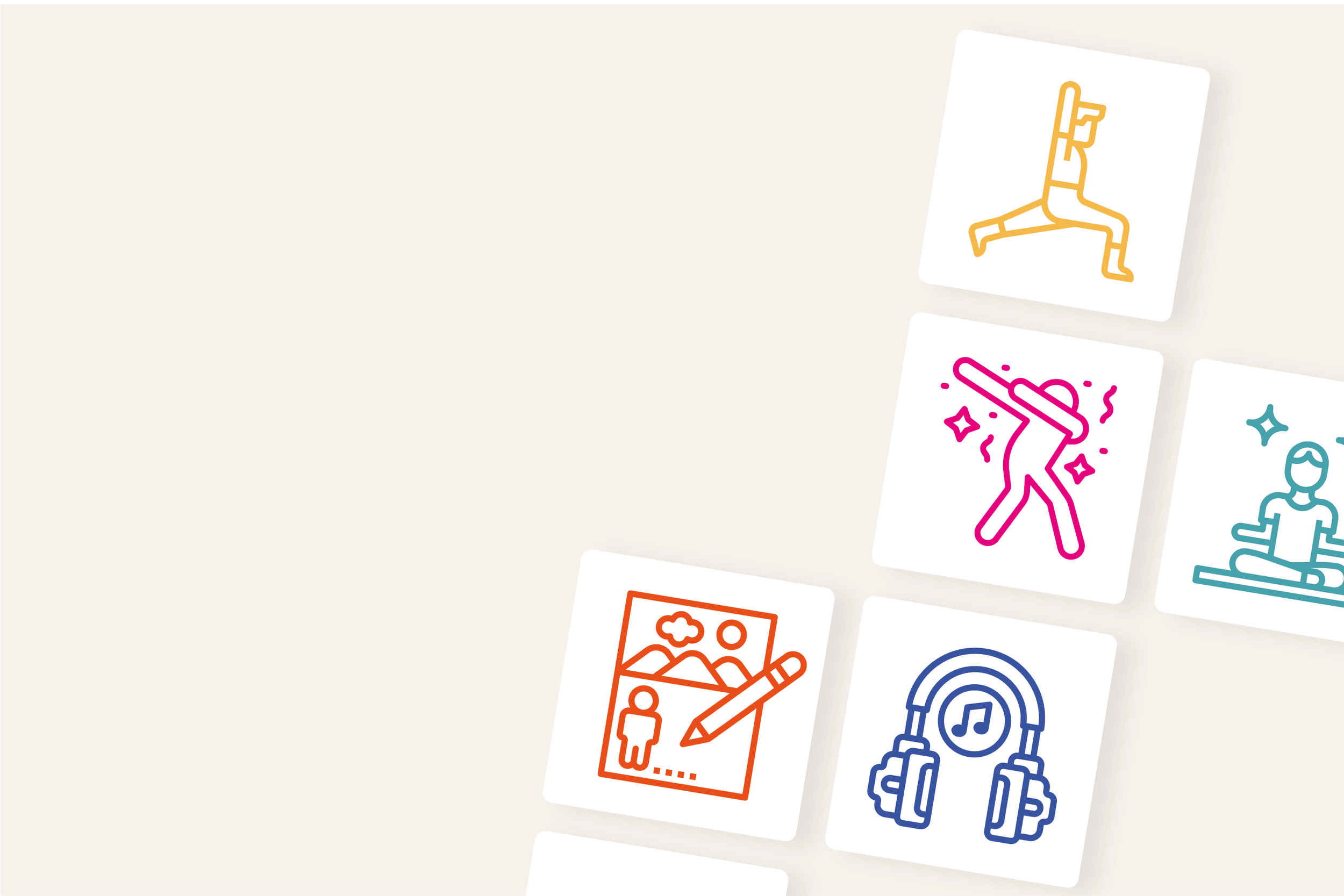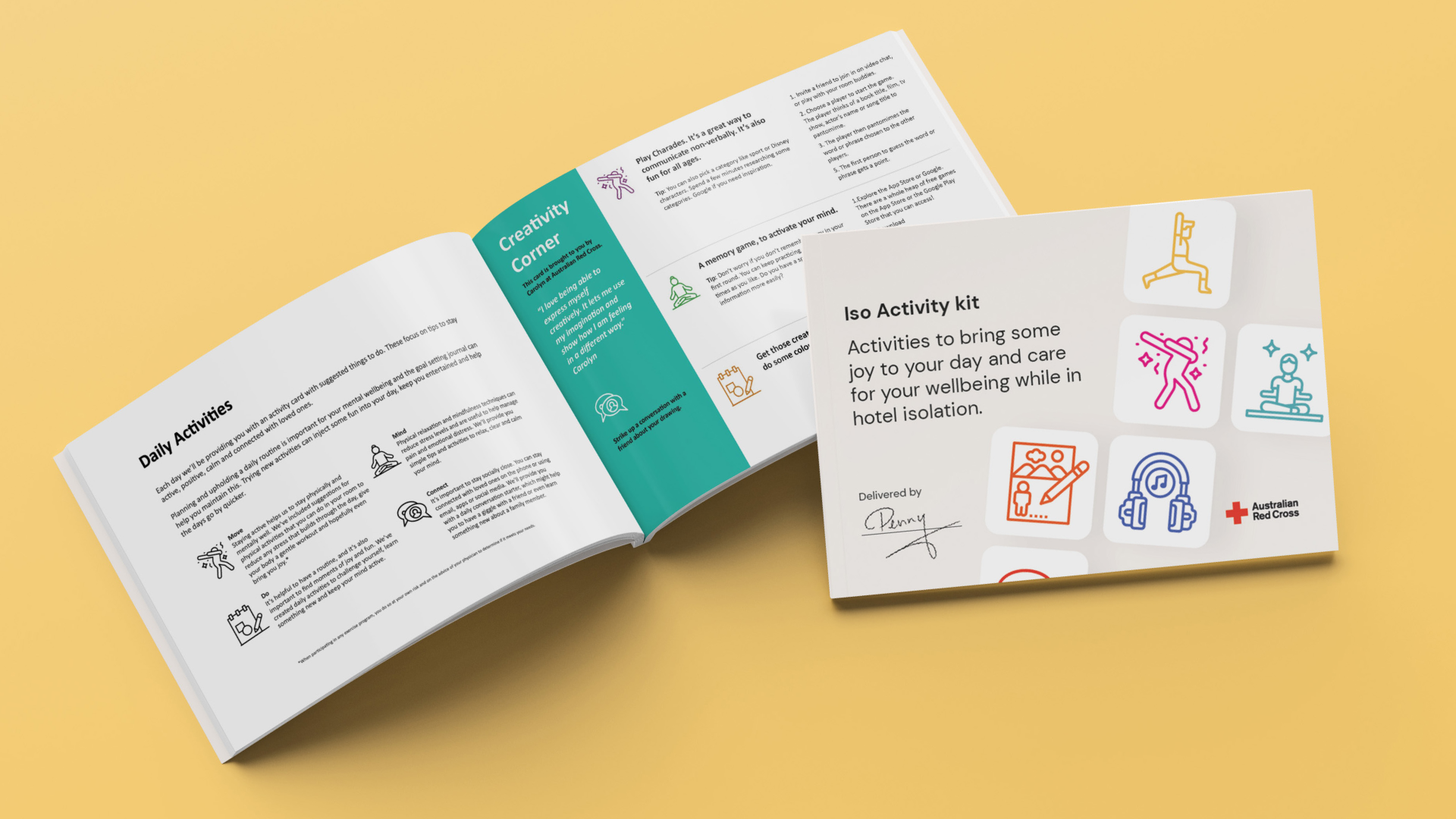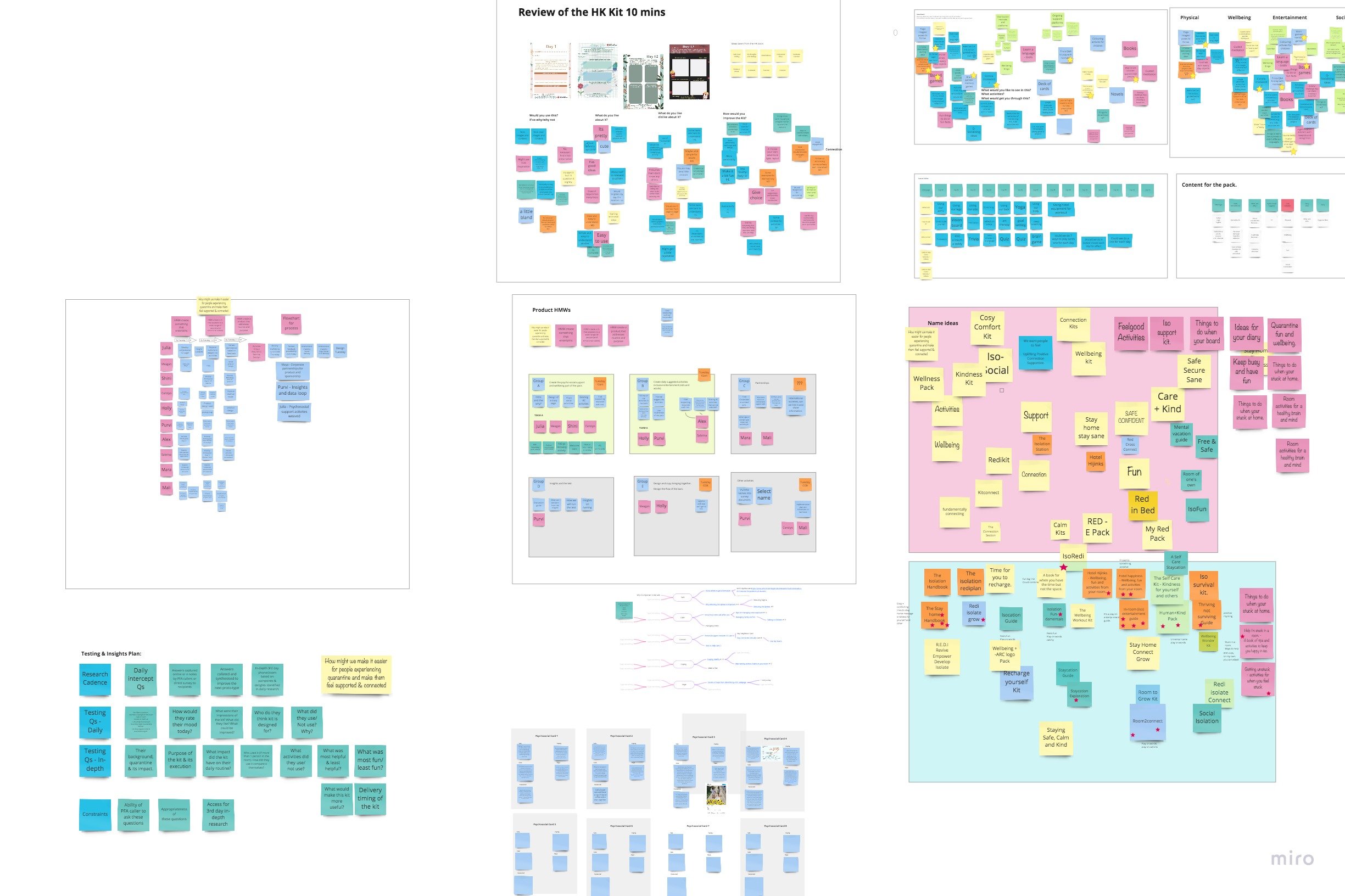
Australia Red Cross
Supporting Australians in mandatory hotel quarantine.
Australian citizens and residents returning to their homeland were mandated to undergo a rigorous 14-day self-isolation period as part of the national strategy to curb the transmission of Covid-19. During this period, individuals were confined to their designated rooms, and regrettably, some needed access to an openable window or suitable dietary options. These circumstances posed significant challenges to the mental well-being of these returning Australians.
In response to this challenge, our mission was to devise a comprehensive kit of curated activities that bolstered the overall well-being and provided vital mental health support to individuals in isolation. We aimed to accomplish this by harnessing the abundant resources within the esteemed Red Cross organisation.
My Role
Lead Service Designer
Company
Australia Red Cross
Skillset
Design process, planning and facilitation.
Product design and delivery.
Insights and data gathering.

Design Challenge
Key Challenge Factors
Collaboration:
Traditionally, the Red Cross operates in separate groups, and decision-making processes can be time-consuming. To overcome this, an agile cross-functional team was formed to streamline decision-making and leverage the organisation's resources effectively.
Expertise Focus:
The project emphasizes leveraging the Red Cross's expertise as an organization to create effective solutions quickly.
Design and implement COVID-19 Quarantine Kits that efficiently address Australians' physical and mental well-being in mandatory hotel quarantine while overcoming organisational barriers and prioritising speed.
Urgency
Time is of the essence. The project requires rapid development and deployment due to the situation's urgency.
Discovery
To understand the conditions inside hotel quarantine, we spoke to Queensland's Psycho-social (PS) support team, who offer support to those in isolation.
Next, we gathered existing Psycho-Social support resources from local and global RC initiatives and mapped what content would be helpful.
Based on what we learned, we created empathy maps for the different types of people in isolation.
As a team, we reviewed the “Hong Kong RC 14-day isolation diary.” using it as a prototype in an initial ideation and testing.

Define
We created a packet of how might we (HMW) statements based on our findings, which included but was not limited to:
HMW incorporate psychosocial support into the pack?
HMW provides a choice within the design so that we can give some of the power back.
HMW designed a pack that can be done in a small room with limited resources. I.e., pen, tv, internet access.
HMW might make the pack inclusive, engaging and accessible for all ages, literacy levels and interests.
HMW incorporate elements of connection to reduce the effects of social isolation.
Build
We ran a team ideation session to develop a broad range of interactive activities for the kit. We weaved elements of psychosocial first aid throughout the pack, incorporating them into the activities and the diary. The core factors that made up the activity were physical movement, wellness, play and connection.
The Hong Kong Red Cross design incorporated the activities in the dairy each day. Through rapid iterations of the pack,
we separated the diary and activities so users had the freedom of choice within
the kit.
To give the pack a personal feel, each activity page was designed by a Red Cross member, giving it a personal touch and allowing us to move away from the brand’s tone of voice and make it more fun and lighthearted.
Test
Our testing revealed that recipients missed the kit in the forms given during quarantine induction.
To remedy this, we changed the look of the pack, so it stood out. We also added it to the Psycho-Social support phone call service and looked at ways to ensure people found the kit when they first entered isolation.
We also found a high level of participants who didn’t speak English. We redesigned the pack and activities with a visual guide to address this, eliminating the need for verbal and/or written explanations.
“This kit should be given on the first day in isolation; it kept me busy and mentally active. It might help if the Red Cross called in to tell us about this.”



